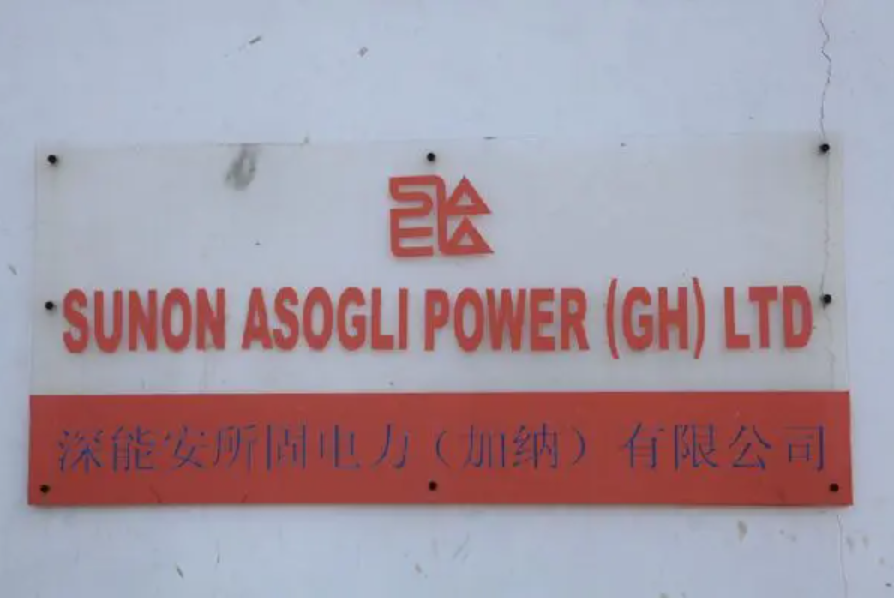The National Labour Commission, (NLC), has agreed to hear the case involving the termination of employment of some workers of Sunon Asogli Power Plant Ghana Limited, the Labour Court in Accra has been informed.
Counsel for NLC, Lawyer Afiba Amihere told the court that, her instructions were that, “the Commission has agreed to hear the matter.”
According to Counsel the directives from the NLC was for her to ask the court to adjourn the case and “sine die” (indefinitely).
Tata Kosi, who was holding brief for substantive counsel, Azali Archimedes Ackuaku, for the Respondent (Sunon Asogli) said, the submissions of counsel for NLC were “accurate.”
Justice Frank Rockson Aboadwe after listening to the parties adjourned the case sine die (indefinitely).
EIB Network’s Legal Affairs Correspondent, Murtala Inusah, gathered that, the meeting is expected to commence on August 16, 2023.
Background
On Monday, the High Court (Labour Division) was to hear a motion on notice to enforce the National Labour Commission’s (NLC) decision in a complaint filed by the Ghana Mineworkers Union against Sunon Asogli Power Ghana Limited.
The NLC is in court to ensure that Sunon Asogli Power Ghana Limited rescind its decision to terminate the employment of members of a local union.
Sunon Asogli Power Limited (the respondent) in the letter to the NLC (applicant) through its lawyers said: ” It does not object to the joining of a union by any of its employees, in as much as the joining of the union, is the sole election of the employee.”
The letter said it objected to the manner the complainant (the Ghana Mineworkers Union) was going about the purported unionisation.
“The process by, which the complainant is proceeding with the purported unionisation is contrary to the applicable statute as the due process provided for by the statute is being disregarded,” the letter stated.
NLC’s affidavits in opposition
In its affidavit in support of its motion, the NLC said the Ghana Mineworkers Union of TUC had petitioned it against the respondent over unfair labour practice and that its members were being coerced to leave the union.
As a result, the NLC by a letter dated March 1, 2022, invited the respondent and without hearing from the respondent after seven days, the NLC said it issued a reminder to the respondent.
The respondent, through its lawyers, then responded and the NLC said on April 27, 2022, it fixed a hearing for the matter but the respondent could not attend.
The Commission then adjourned the matter but gave some directives among other things that the respondent recognised the Collective Bargaining Certificate (CBC).
“That the parties should constitute a Standing Negotiating Committee (SNC) to negotiate and resolve any disagreement they have, failing for which, they must report to the Commission.”
Plot
The NCL said on June 16, 2023, the Commission received a joint letter from the parties indicating that they had not been able to reach an agreement in line with the directives of the NLC.
Before that, the NLC said on September 7, 2022, both parties agreed in principle to respect the CBC.
It consequently, directed the parties to submit a report jointly signed on the terms of the settlement.
But, on October 11, 2022, the Union wrote to the Commission that the respondent was making it difficult the implementation of the Commission’s directives.
After various meetings between the parties, a notice of an industrial strike was served on the Commission and on receipt of the notice of strike, it asked the parties ” to stay all intended strike actions”.
The NLC said on March 3, 2023, the Union wrote to it indicating that the respondent had been issuing threats and intimidating members of the local executives to the extent that three workers had had their employment terminated despite the Commission’s directive “to stay all intended actions”.
The commission held that, the said “termination of employment of the three employees was not justifiable in law”.
The NLC stated that it breached the Labour Act provision of unfair labour practice and a breached of the fundamental rights of employees to associate with unions of their Choice.
Source: Ghana/Starrfm.com.gh/103.5FM/Murtala Inusah




